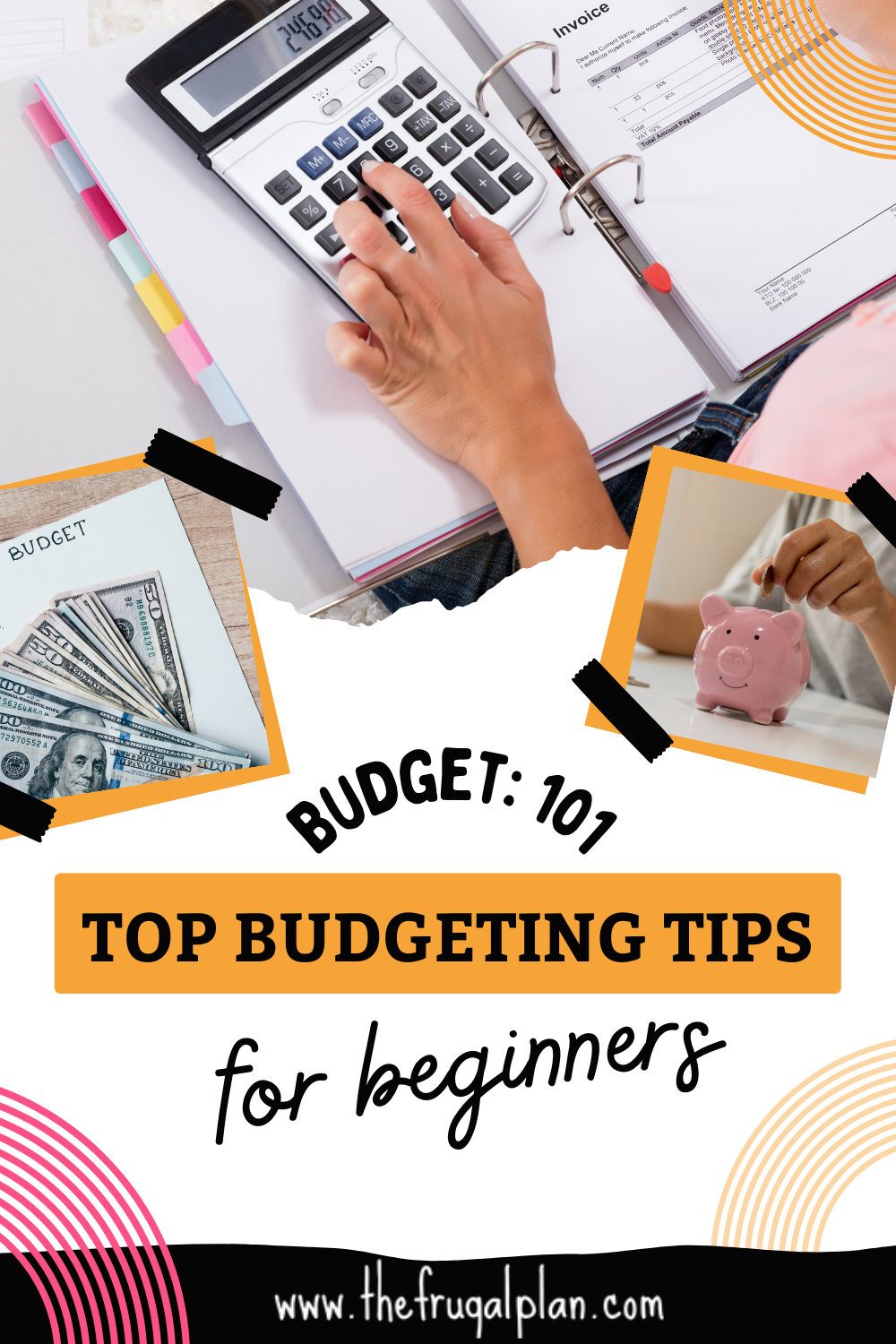BUDGET 101: TOP BUDGETING TIPS FOR BEGINNERS
DISCLOSURE: This post may contain affiliate links. This means that I may receive a commission for purchases made through the links on this website, but at no extra cost to you. Please click here for complete disclosure.
LAST UPDATED ON: 01/07/2025
Are you looking for budget tips?
Here you will find the top 7 budgeting tips for beginners.
When done right, budgeting will save you a ton of money. However, when creating your budget, it's best to be realistic as possible.
The more accurate you are with your budget, the easier it is to maintain and get under control.
Below you will find the top budgeting tips for beginners.
1. CREATE A BUDGET AND TRACK SPENDING
First, create a realistic budget. Creating a realistic budget is highly important. The easiest way to start budgeting is to pick a method that is easy to understand.
After establishing your budget, it's essential to track all your expenses carefully. Tracking every expense is crucial for effective budgeting.
Make sure to record every purchase, from large bills to small daily expenses. You can categorize them into groups such as groceries, utilities, self-care, entertainment, and more.
Review your bank and credit card statements to ensure you haven't overlooked any transactions when you are recording your expenses.
Periodically evaluate your spending to identify areas where you can improve, cut back, or adjust in order to stay aligned with your budgeting goals.
Need help creating a budget? Click here to learn more!
2. PAY YOURSELF FIRST
To pay yourself first, decide on a percentage of your income that you will set aside each time you get paid. Ideally, this amount will depend on your personal circumstances, but I recommend setting aside at least 10% or more of your income.
Treat this savings amount like a fixed expense. Have the money transferred to a savings account as soon as you receive your paycheck. As you develop this habit, consider increasing the percentage you save over time.
3. SET SHORT-TERM & LONG-TERM SAVING GOALS
You should always have both short-term and long-term saving goals.
Short-term saving goals you can accomplish in two years or less. Below are some examples of short-term saving goals.
DOWN PAYMENT FOR A CAR
BUYING A PET
VACATION
EMERGENCY FUND
And long-term saving goals usually take a lot longer to accomplish. Below are examples of long-term goals.
RETIREMENT
BUY A HOUSE
BUYING A VACATION HOME
PAYING FOR KIDS COLLEGE
4. EMERGENCY FUND/RAINY DAY FUND
Do you have an emergency fund? If not, consider starting one. Start by saving at least $1,000.00.
After saving $1,0000.00, work on growing your emergency fund to three to six months of your monthly expenses.
5. GET YOUR SPOUSE INVOLVED
If you are in a relationship, you and your spouse should be on the same page. The easiest way to do this is to have a simple conversation; this way, you are both on the same page.
6. CHANGE YOUR LIFESTYLE
If you have bad or expensive habits, now is a great time to think about changing them. Bad habits are expensive and will keep you broke. So, eliminating your bad habits is necessary.
1. Brew Coffee at Home: Instead of spending $5.00 to $10.00 daily at coffee shops, consider making your coffee at home. The cost for a month’s worth of coffee is around $10.00 or less.
2. At-Home Beauty Treatments: Salon visits can cost a few hundred dollars every few weeks. Save money by doing your facials, hair, nails, and pedicures at home.
3. Cook at Home: If you enjoy dining out, try recreating your favorite restaurant meals at home. This can save you a significant amount of money.
4. Quit Smoking: Consider quitting smoking or replacing it with healthier habits, such as chewing sugar-free gum or going for a walk.
7. REVIEW & ADJUST REGULARLY
Revisiting your budget regularly is necessary. Check at least twice a month until you feel comfortable with budgeting and tracking expenses. Remember to adjust your budget whenever your income or expenses change.
To Summarize:
CREATE A BUDGET AND TRACK SPENDING
PAY YOURSELF FIRST
SET SHORT-TERM & LONG-TERM SAVING GOALS
EMERGENCY FUND/RAINY DAY FUND
GET YOUR SPOUSE INVOLVED
CHANGE YOUR LIFESTYLE
REVIEW & ADJUST REGULARLY
IN CONCLUSION
Creating a realistic budget is essential. As you begin, it's important to remain patient, stay consistent, and make adjustments as necessary.





